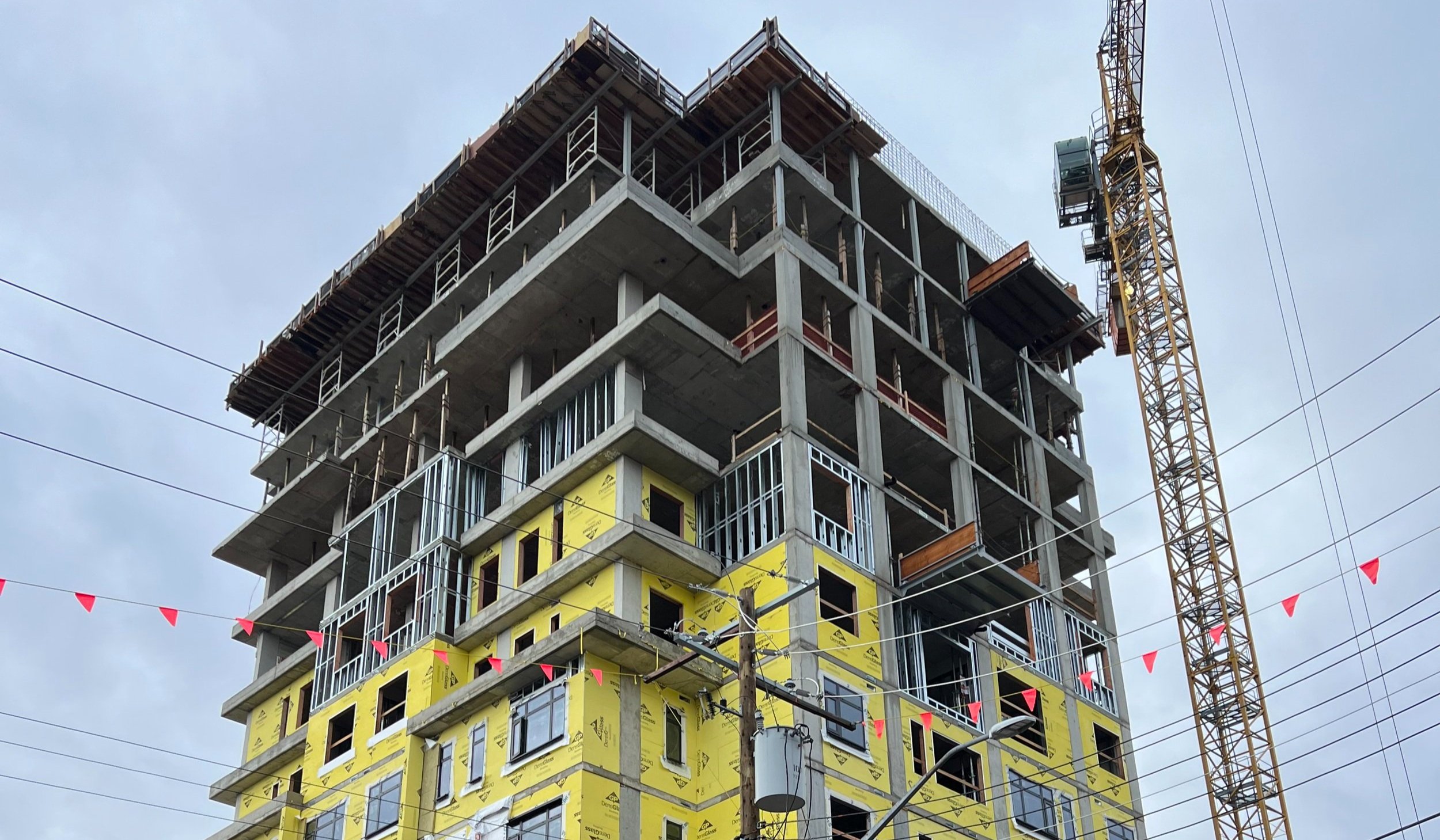As immigration in Metro Vancouver continues to increase, the demand for different types of residential properties also rises. Especially in multifamily properties, supplies fall behind current demand, creating this opportune gap for developers and investors.
Home Prices and Interest Rates
Current increased home prices and rising interest rates are also a driver for the demand for multifamily. Many mid to high-income earners are looking to purchase multifamily homes, instead of single-family. 502,000 new jobs predicated.
New Jobs
Another important driver for this rising trend is the prediction that there will be thousands of new jobs created. 502,000 to be exact. Many of which are in the fast-growing tech sector. This will bring more population into Metro Vancouver, therefore, adding to the demand.
Demand For High-End Multifamily
As the tech industry grows in Metro Vancouver, more high-income earners will be attracted to the city. As a result, high-end multifamily products will experience an increase in demand.
Demand For Mid to Low Tier Multifamily
Mid to lower-tier multifamily products will also be in higher demand this year as tourism resumes in full bloom. This increases the number of service jobs in the city. Workers attracted to Metro Vancouver will be looking for such properties as their new homes. There’s an opportunity in the rental market in this tier since most developers are focused on building condos. Moreover, there were 25% fewer new rental buildings in 2022 than the year before which is an advantage for existing buildings. Regardless, it is a good market condition to invest in current buildings or build new ones.
Sources: CBRE Canada Cap Rates & Investment Insights Q3 2022, Marcus Millichap Multifamily Market Report 2022
MORE NEWS…
2023 Regulation Change
The Home Buyer Rescission Period / Cooling Off Period.
The B.C. Provincial Government introduced the Home Buyer Rescission Period (“HBRP”) a.k.a the “Cooling Off Period” in January of this year. As of January 3, 2023, the HBRP is in effect and will apply to most residential transactions.
– What is the HBRP?
In summary, it gives a Buyer 3 days after acceptance of their offer to rescind their offer, even if their offer is subject-free.
– Is there a penalty if a Buyer rescinds their offer pursuant to the HBRP?
Yes, the penalty the Buyer must pay equates to 0.25% of the agreed purchase price. For example, if the Buyer walks away from a residential purchase of a property worth $1,000,000, the penalty would be $2,500.00.
– Are there exemptions?
Yes, there are some exemptions but most residential transactions will fall under HBRP. Some exemptions include residential property on leasehold land, residential properties sold under court order, assignment of contracts, residential properties sold at auction, and a leasehold interest in residential property.
The Foreign Buyer Ban
The Prohibition on the Purchase of Residential Property by Non-Canadians Act, also known as the “foreign buyer ban”, was first announced in April 2022 and took effect on January 1st, 2023. In effect, this legislation will restrict most foreigners from purchasing residential property in Canada for the next 2 years.
The following parties and properties will however be exempt from the foreign buyer ban:
- Canadian citizens and permanent residents.
- International students who meet certain requirements, including having spent the bulk of the previous five years in Canada. They would be able to purchase a property for no more than $500,000.
- Workers who have worked and filed tax returns in Canada for at least three out of the four years prior to purchasing a property.
- Diplomats, consular staff and members of international organizations living in Canada.
- Foreign nationals with temporary resident status, including people fleeing conflict, and refugees.
Do note that buildings containing more than three dwelling units, and recreational property — such as cottages, cabins and other vacation homes — will also be exempt.
Non-Canadian owned entities, such as corporations, and foreign-controlled Canadian entities, will also be banned from buying residential property under the Act.
